First of all – how long should my mattress last?
If we’re being completely honest – there is no right answer to this question. Every mattress is a story for itself and there are just too many factors in play to just pick a number a call it a day.
First of all, the quality of the material and craftsmanship will greatly affect the longevity of a mattress. One good example is Panda Hybrid Bamboo mattress that is highly durable and comes with a warranty. Secondly, the type of mattress will also determine the lifespan of a mattress.
For instance, a latex mattress will last longer than an innerspring one. Finally, the maintenance and how you take care of a mattress will also affect how long it lasts.
With all that in mind – we’d say that a mattress will last you anywhere between 4 to 10 years.
How do I know that it’s time to dispose of your mattress & replace a mattress?
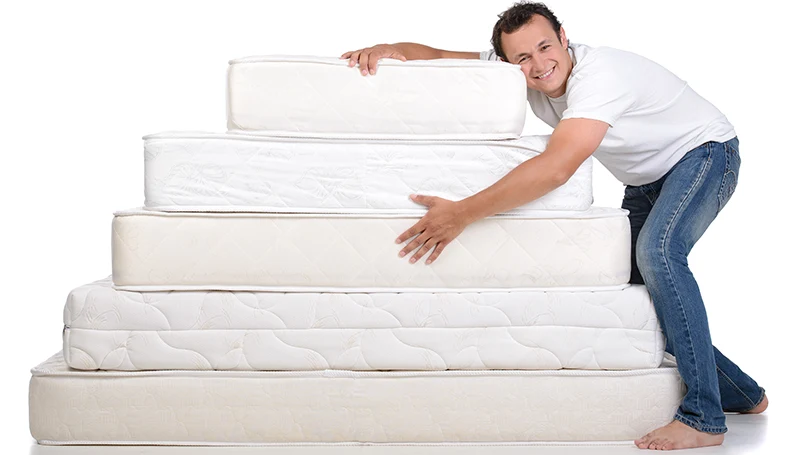
As your old mattress approaches its end, you’ll start noticing all kinds of changes happening.
First of all, you’re probably going to experience some sleep issues as the mattress deteriorates. Chances are, you’re going to start waking up sore and tired, with pain in the hips, lower back or shoulders, depending on the sleeping position. Your muscles might feel stiff, as well. Additionally, the hypoallergenic properties of a mattress might be fading, so you might experience some troubles with dust mites or other allergens.
All in all, whatever it was that made the mattress good in the first place won’t be nearly as good this time around. The memory foam will sink, the springs will weaken, motion isolation will be non-existent and so on. So, when this time comes – you may look for a replacement.
How do I extend the lifespan of a mattress?
While it is true that proper care can extend the lifetime of a mattress – don't expect miracles. According to the furniture recycling group, the best thing you can do to extend the lifespan of a mattress is to use the mattress topper, which would lower the impact of wear and tear on the mattress itself. Additionally, if you have a double-sided mattress – flip it; one-sided – rotate it. Furthermore, use quality sheets to prevent stains and damage to the cover. These are the only cost-effective ways of prolonging the lifespan of your mattress.
Steps for mattress disposal for free
Once the disposal time comes – you have three options. You can throw away the mattress, donate it to a local shelter or mattress recycling centre, or someone in need or recycle it on your own. Far too many mattresses are good for recycling. How do you know which option is good? Well, let’s find out – starting with the latter.
Recycling
Most of the materials that are being used for mattress manufacturing can be recycled in specialist mattress companies. However, considering that most mattresses are made from more than one material, it might be hard for you to find a mattress collection service that will recycle your mattress for free.
For quite some time, it was fairly challenging to properly recycle old mattresses as the National Bed Federation did not come up with such a process or procedure. But fortunately, it is no longer so. Nowadays, old mattress disposal is easily performed as there is probably a local recycling centre in your city area. Millions of tons of polyurethane foam, cotton, springs and other materials from old mattresses end up recycled and all that you have to do is drop off the mattress at the nearest recycling facility.
In addition to that, you could even perform mattress recycling on your own, but the question is – should you? There is going to be a bulky waste collection afterwards that you need to get rid of in the proper way.
DIY or Professional mattress recycling
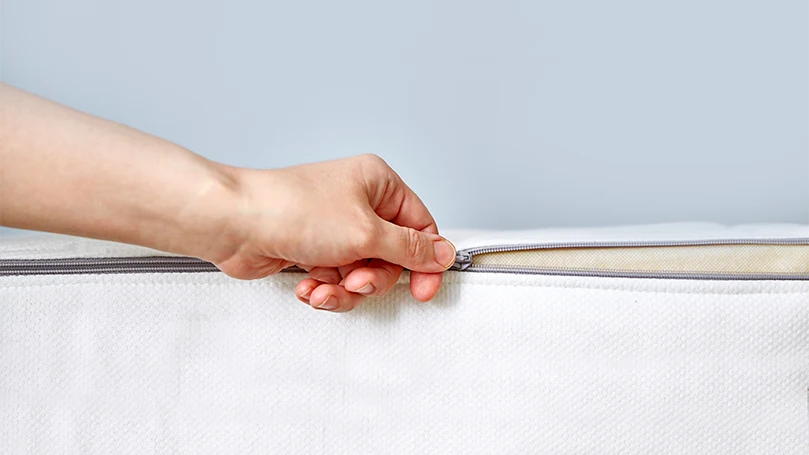
On the other hand, if you don’t have the tools or the will to do any of this, you may just find a specialist disposal company that doesn’t mind doing the exact same thing and just letting them handle it. As we’ve said, the end result is the same, so just choose whichever one seems fit. Still, some mattress retailers will give you a replacement mattress at the lower price tag.
Donating
If you've just upgraded and your mattress is still in pretty good condition, we'd suggest donating it, instead of disposing of it in any other way. There are more people in need than we’d like to admit and doing a good, selfless deed every once in a while is always a good option. Whether you have a single mattress, double mattress, or KING that you want to donate, a free second-hand mattress is always a good choice for people who are on a budget.
To be perfectly candid, we’re not suggesting throwing your mattress on the street and hoping a homeless person would find it. No, we don't encourage you to dispose of your old mattress on a landfill site, outside of the recycling centres. Instead, stay environmentally conscious – donate the mattress responsibly to the nearest recycling centre, a dedicated recycling facility or some kind of charitable organization that’ll know exactly what to do with it and will make sure to make the most out of your donation.
Many local authorities will find a place or even use recyclable components and synthetic layers or raw materials for making brand-new mattresses. Discussing the problem with a local council is always a good thing to do as they will know more about the regulations or different needs that might make your mattress disposal easier and more convenient.
How do I know if my mattress is good enough for donating?
Fortunately or unfortunately, depending on how you look at it, not every mattress can be donated. Some would argue that something is better than nothing, but we’d have to respectfully disagree. But how do I know when it is the right time to donate my old mattress and get myself a new mattress?
How clean a mattress is
There's more than one thing to pay attention to if you want to donate a mattress. First of all, you need to donate a clean mattress. By clean, we do not mean a mattress without any stains that couldn't be removed – we mean free of any infestations like bed bugs, dust mites or mould. You wouldn't want to sleep on an infested mattress, so you could see how no one else would, too. Before you consider donating it, you should try to clean your mattress using some of the proven methods.
However, stains aren’t allowed as well. No matter how small or insignificant you might find them and whether they’re from coffee, baby food or just wear and tear discolouration – a mattress like that can’t be donated.
Structural problems
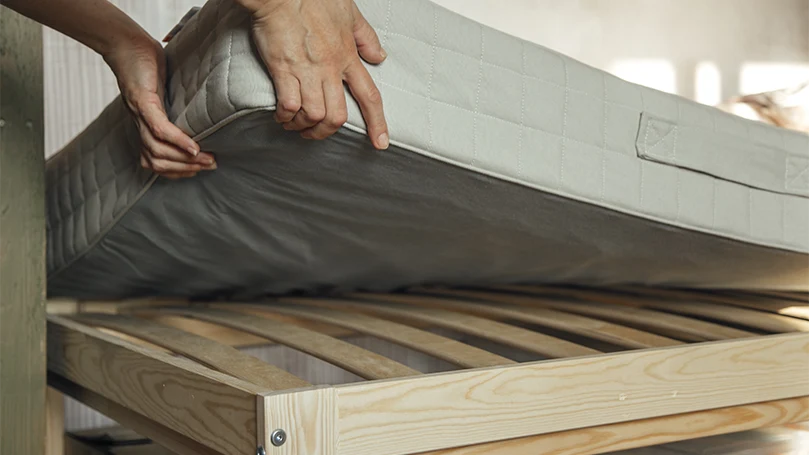
Additionally, structural issues could also be a problem. Memory foam mattresses can get sagged over time. A memory foam mattress with major body imprints is as good as an innerspring with bent, destroyed coils, meaning, it's not good. A used mattress you're donating should be in good condition, without any obvious structural problems. No sagging, no sinking and no bunching- especially if you are using high density memory foam! No one should sleep on a mattress like that!
The collection services would inspect the old bed prior to sending it to the recycling centre and if it is not damaged that much, it will be added to the mattress collection. Furthermore, a mattress with rips, tears or holes is also not suitable for donation. Once again, it doesn’t matter how the damage occurred and how insignificant you find it to be – a mattress like that is not a suitable donation.
Odour
Finally, make sure your mattress isn’t stinky. Some mattresses have natural odours, but other than that – there shouldn’t be any. If your mattress smells, you can’t donate it. Luckily, some odours can be removed, with a DIY baking soda solution, but in most instances, if the smell is too strong – it’s not going to cut it.
All in all, if you want to donate a mattress, it has to be in good condition. That means – no odours, no rips, tears or holes, no structural damages and no stains or infestations. If your mattress isn’t good by those standards, either recycle it or do the following.
Throw it away
Throwing the mattress away could be your only option if the mattress is too damaged to be donated or you just don't have the ability to recycle it for whatever reason. Keep in mind, however, that you can't just toss your mattress in the trash. Mattress disposal should be performed in an eco-friendly way.
Your safest bet, in this case, is to call a waste disposal service. Now, that may not always be free, but you could always ask is it going to be. Even if it doesn't turn out to be free, it will be fairly affordable.
Another thing you could do is contact your mattress manufacturer and see if they offer old mattress disposal for getting a new mattress. If they do, you can easily and freely get rid of your old mattress at the same time you receive your new one.

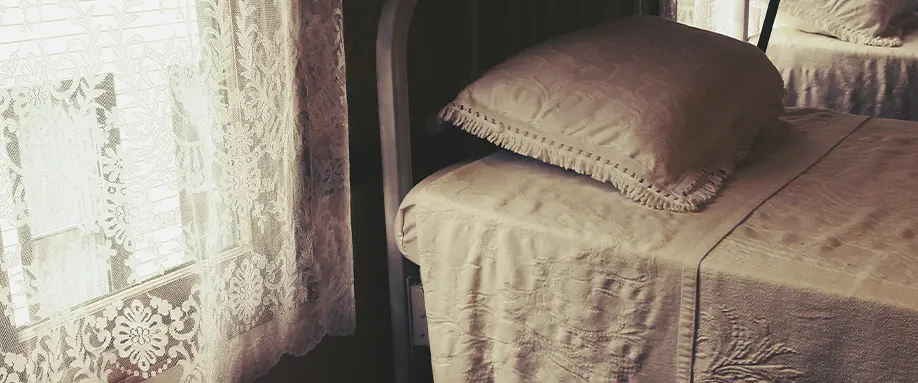
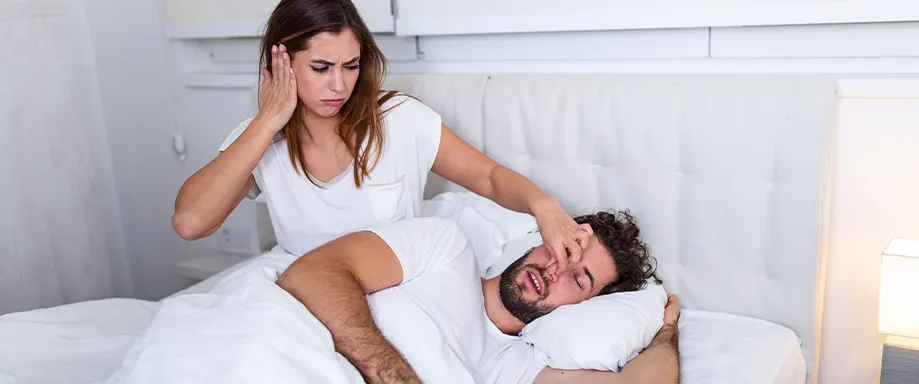
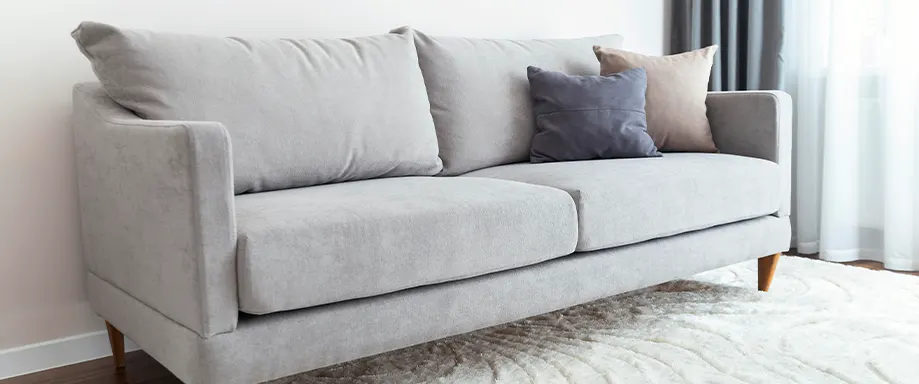











There are no comments yet
"*" indicates required fields